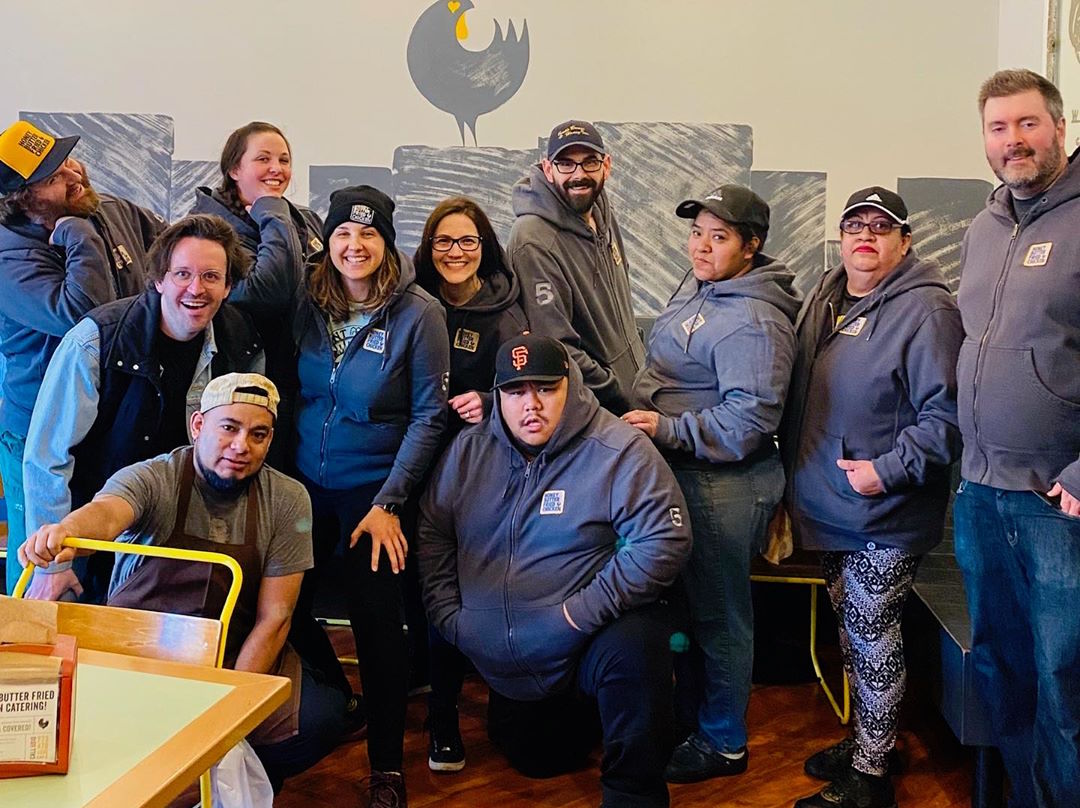When a restaurant is closed due to coronavirus, the chefs and owners just stay home like the rest of us who can, right?
Wrong. “I have a full-time job, but I’m just not being paid for it,” says chef Christine Cikowski of Honey Butter Fried Chicken in Avondale.
After the shutdown order, Honey Butter, which is co-owned by Cikowski and chef Josh Kulp, stayed open for a couple weeks doing delivery and takeout orders. However, on March 30, they decided to close the restaurant out of concern for the safety of employees and customers. Even so, that hasn’t slowed their lives down much – just dramatically changed them.
I caught Cikowski and Kulp in a brief lull during a day full of calls. At one point, Kulp had to leave our conversation to talk to a bank, part of their ongoing attempt to determine if Honey Butter qualifies for any government relief programs. They took themselves off payroll to conserve funds even before the restaurant closed and are doing everything they can think of to keep paying benefits for their employees.
To an impartial observer, the timing of Honey Butter’s announcement might have seemed odd. Kulp says orders were pouring in all the way until closing day. “We actually had to turn away business that we could have had on the last few days because it was so overwhelming,” he says. “We were doing several hundred orders a night.”
But that meant a crowded kitchen, which wasn’t designed for social distancing, as well as regular contact with delivery drivers and patrons. “We were doing our best, but there’s no guidance about how to be 100 percent safe,” Cikowski explains.
Moving forward, the lack of guidance on food service still troubles Kulp. “We have no idea how to cook in this environment,” he says. “Can I taste food while wearing a mask? What if I take it off? Can I touch salt to season food? How do I make sure food is hot to the touch?”
The federal stimulus package, the CARES Act, was designed to help businesses operate their way through the crisis, but attempting to navigate the relevant portion of the act, the Paycheck Protection Program (PPP), has been a nightmare for this small business. Kulp describes his days lately as “mostly stressing and trying to navigate the shitshow that is the government response to the crisis.” He describes conflicting advice from banks, fears that loans won’t be forgiven because of some small mistake, and, above all, the stressful lack of clarity.
“The crazy part is, if you spend it improperly, you might come out the other side owing a huge amount in 18 months,” he says.
Kulp and Cikowski have long been local and national leaders in the hospitality industry when it comes to fair wages, eliminating tipping, and paying benefits for their employees. This crisis has only laid bare the problems they’ve been railing against for years, especially the connection between health insurance and employment.
“It’s beyond unconscionable that in the richest nation on earth, a couple of people who own a fried chicken restaurant are burdened with the decision of whether 48 people have health insurance in the middle of a pandemic,” Kulp says.
No matter what, Kulp and Cikowski keep trying everything they can. They started a GoFundMe campaign for Honey Butter employees and have covered health insurance for their employees through April. They’re looking for ways to do the same in May. Their other business, Sunday Dinner Club, has done a limited number of take-away dinners, which sold out immediately. They’ve also auctioned off future dinners to raise funds, and continue to explore options for how to cook safely so they can bring in revenue and serve their loyal customer base.
They are also focused on trying to stay in touch with their customers, especially through social media. They're doing a cooking segment each week on Instagram Live and sending out newsletters.
“I’ve learned more about Zoom and Instagram Live than I’d care to know,” Cikowski says with a laugh.
This effort, in addition to strengthening their business, is ultimately about connection in an incredibly uncertain time.
“As chefs, our whole mission in life is to serve people, to take care of them and feed them — in physical ways with food, but also providing welcoming spaces and friendly ears and friendly faces,” Cikowski says. “That’s been stripped from us now.”



